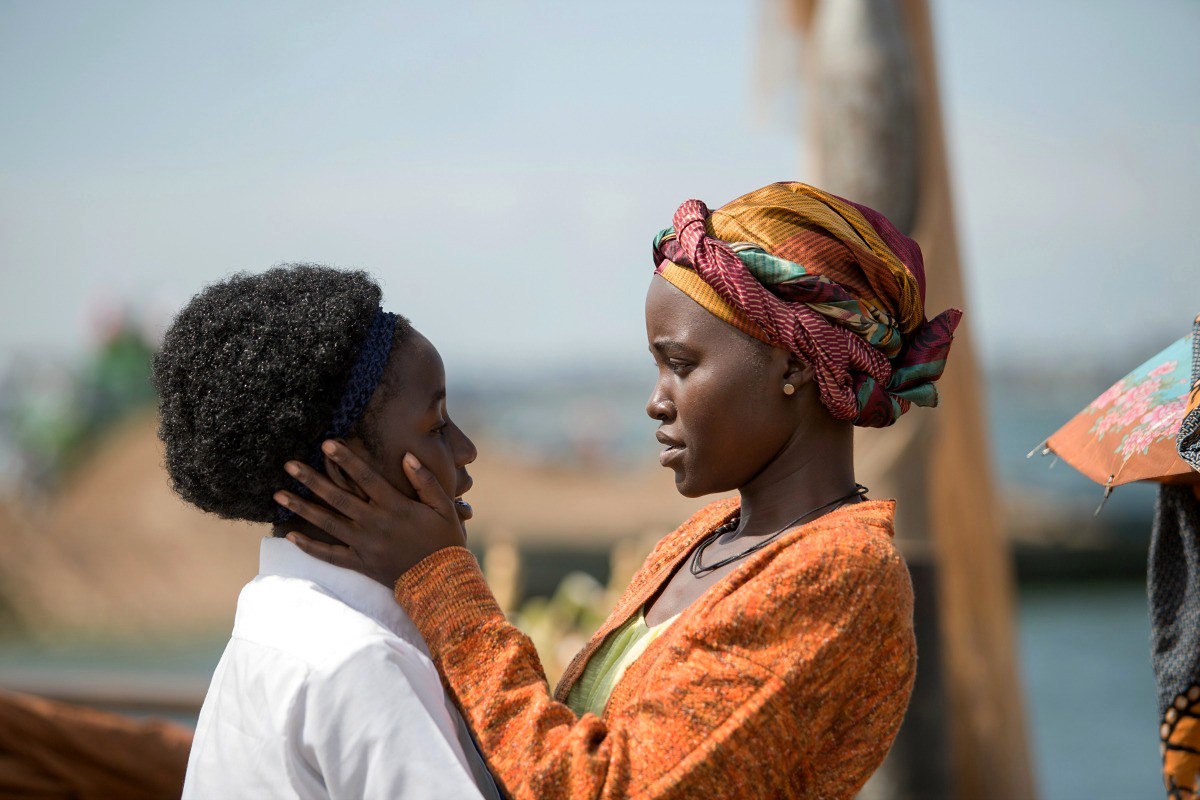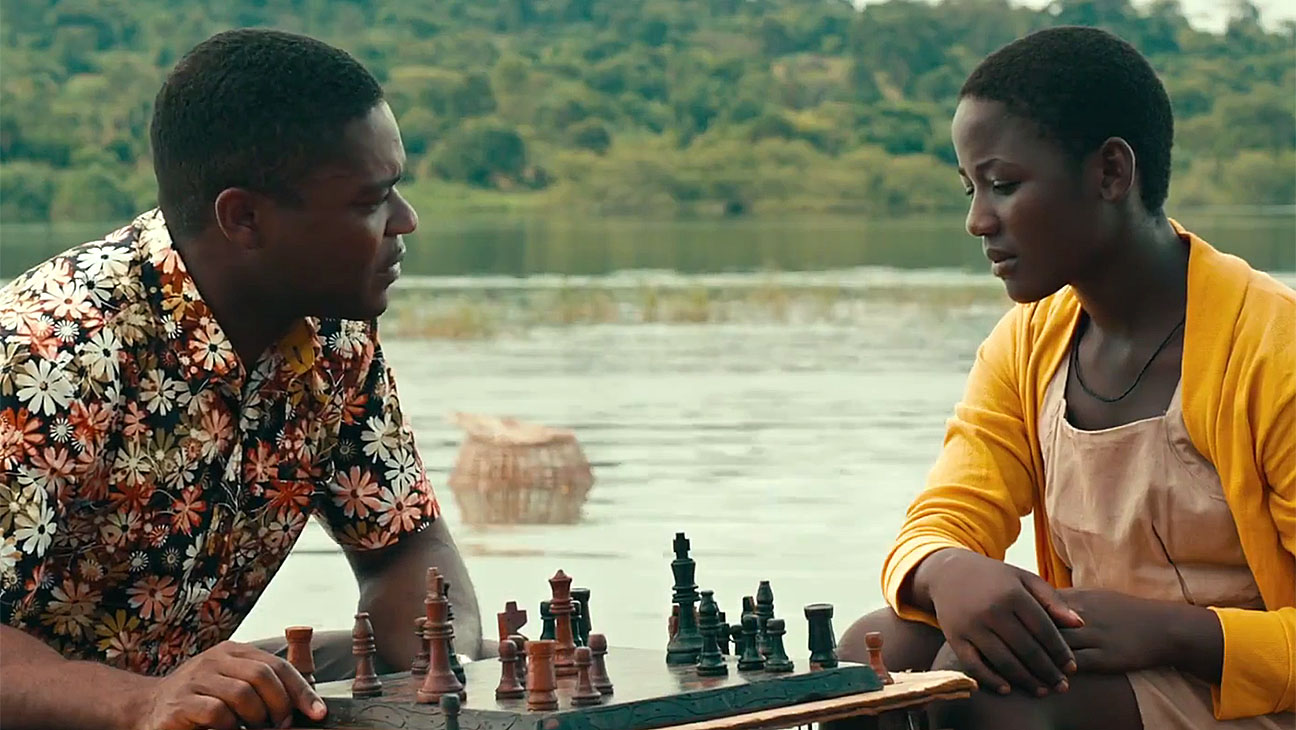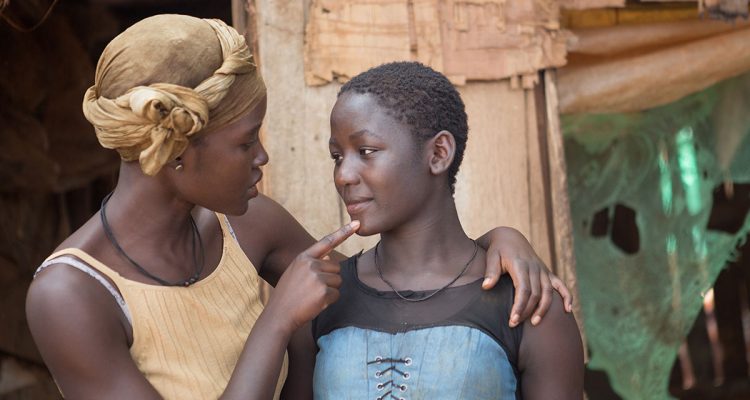TORONTO – If someone were to pitch you a Disney sports movie about a child chess prodigy from the slums of Africa you could pretty much map it out in your head without even seeing a trailer. The prodigy would be played by the pluckiest girl you ever did see. Even the filthiest slums would look incredibly clean. Our heroine’s fellow chess players would adorably make wise cracks or funny expressions as comic relief. Oh, and it obviously would include the happiest of happy endings. That may be the Disney brand many people think of when it comes to a live action biopic but with “Queen of Katwe,” which debuted at the 2016 Toronto International Film Festival on Saturday night, director Mira Nair and the studio are doing everything they can to prove that prejudice wrong.
Based on “The Queen of Katwe: A Story of Life, Chess, and One Extraordinary Girl’s Dream of Becoming a Grandmaster” by Tim Crothers, Nair’s latest film chronicles the rise of Phiona Mutesi, a young Ugandan girl who unexpectedly learns how to play chess under the guidance of a former soccer player, Robert Katende (the always charming David Oyelowo), looking to provide an outlet for the disadvantaged kids from the slums of Katwe. Phiona (played by talented newcomer Madina Nalwanga) only becomes interested in chess after her brother starts sneaking off to the classes.
Showing remarkable skills for her age, Phiona eventually becomes so good that she’s beating all of her fellow Katwe players on a regular basis. All the kids are talented players, but Phiona’s domination convinces Katende to raise money to take them to a local tournament where they can compete opposite kids who are going to fancier schools. Those students should be much better players, but Phiona and her teammates shock them by winning their respective categories. Before long Phiona’s skills are so impressive she’s representing Uganda in competitions in other parts of Africa and the world.
 While the historically accurate tale of Phiona’s ascension as major chess talent is naturally compelling, it doses feature many of the standard underdog plot elements you’ve seen before. She has a wave of initial surprising success. She stumbles, wants to quit and then returns more triumphant than ever. Where “Katwe” diverges from this familiar tale is in the depiction of Phiona’s every day life and her relationship with her mother, Nakku Harriet (Lupita Nyong’o).
While the historically accurate tale of Phiona’s ascension as major chess talent is naturally compelling, it doses feature many of the standard underdog plot elements you’ve seen before. She has a wave of initial surprising success. She stumbles, wants to quit and then returns more triumphant than ever. Where “Katwe” diverges from this familiar tale is in the depiction of Phiona’s every day life and her relationship with her mother, Nakku Harriet (Lupita Nyong’o).
As you’d expect from a filmmaker of her caliber, Nair is more interested in depicting the truth of Phiona’s life and those around her more than anything else. The production is shot on location in the same poor neighborhoods where Katwe grew up and you come to understand the pressure on Nakku to care for her four children as a single mother that sells maize (corn) in the local market to survive. At one point circumstances out of Nakku’s control find her family kicked out of their rented shack and living on the streets. Her perseverance is remarkable even if she doesn’t comprehend how her daughter’s chess skills could ever help their entire family in the long run.
By the time Phiona becomes a teenager she’s had tremendous success as a chess player. She’s traveled on airplanes and slept in fancy hotels thanks to sponsors supporting her efforts. Returning to a world in Katwe where her family sleeps on the floor of their one room home fosters resentment for a mother who has no other means to support her offspring. Phiona eventually begins to live with Katende and his wife in their more modern dwellings which hurts Nakku more than she can say. This storyline eventually becomes the heart of the picture and much more intriguing than any of Phiona’s battles on a chessboard.
While she is somewhat frustratingly absent in the first act of the movie, Nakku becomes a central figure in the latter half of the picture. This allows Nyong’o, who hasn’t played a live action character since winning an Academy Award for her role in “12 Years A Slave,” to remind us just how transcendent an actress she can be. Nyong’o is heartbreakingly impressive, providing Nakku an authentic truth no screenplay could ever convey.
 Along with cinematographer Sean Bobbitt, Nair captures the slums of Katwe on screen beautifully, but does so in a way that authentically depicts its economic disparity while still capturing the energy and joy of its people. Niar also does a fantastic job directing a bunch of youngsters on Phiona’s chess team who were clearly not professional actors and fashions them into well-rounded scene-stealers.
Along with cinematographer Sean Bobbitt, Nair captures the slums of Katwe on screen beautifully, but does so in a way that authentically depicts its economic disparity while still capturing the energy and joy of its people. Niar also does a fantastic job directing a bunch of youngsters on Phiona’s chess team who were clearly not professional actors and fashions them into well-rounded scene-stealers.
For all of Nair’s success however, “Katwe” is not without its issues. Sticking to the true story of Phiona’s chess journey becomes slightly repetitive and drags the proceedings a bit in the third act. Moreover, if you don’t know the rules of chess very well the drama during the official competitions make those matches often less compelling than Nair or her editors might have believed. And, while Nalwanga exudes a natural charisma there are times when she becomes slightly lost with the enormity of the role in front of her.
“Katwe’s” biggest gift is that it opens up a window to a world rarely depicted on screen outside of random documentaries and international news reports. That being said, Nair and Disney shouldn’t be graded on a curve because of their willingness to bring this story to life. The picture is genuinely entertaining and moving, but the fact it even exists in the first place is something you simply cannot dismiss. [B]
Click here for our complete coverage of the 2016 Toronto International Film Festival


